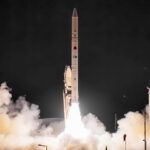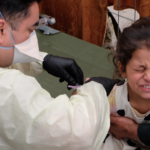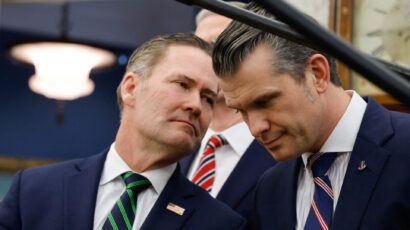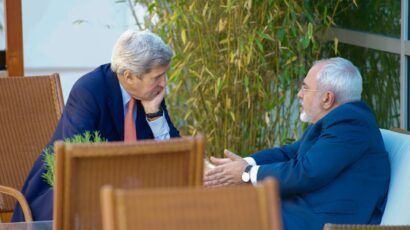Remembering a humble giant of biological and chemical weapons control
By Paul F. Walker | August 4, 2011
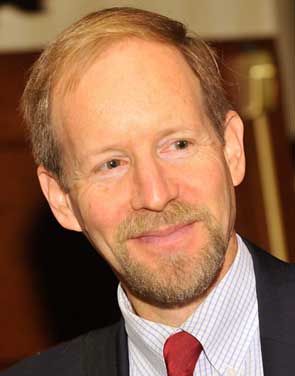
Jonathan Tucker, one of the world’s most eminent experts in chemical and biological weapons, arms control and disarmament, and nonproliferation, died recently at his home in Washington, DC. He was 56 years old.
To the general public, Jonathan was perhaps best known for his books on nerve agents, the most deadly chemical weapons, and on smallpox, the virus, now confined to two biological laboratories, that Jonathan described as “the world’s most dangerous prisoner.” The New York Times called his book, War of Nerves: Chemical Warfare from World War I to Al-Qaeda, “[c]hilling … A history of the race between the advance of this taboo technology and the political efforts to abolish it. Tucker … has a gift for making military science readable.”
Indeed, with a bachelor degree in biology from Yale, a master degree in international relations from the University of Pennsylvania, and a doctorate in political science with a focus on security policy from MIT — not to mention journalism experience as an editor at Scientific American and High Technology — Jonathan was well-equipped to not only combine his strong interests in science, policy, and international security issues, but to effectively communicate his message to any audience. He wrote Scourge: The Once and Future Threat of Smallpox and Ellie: A Child’s Fight Against Leukemia and edited Toxic Terror: Assessing Terrorist Use of Biological and Chemical Weapons.
Jonathan was perfectly described by his close friend and fellow Yale graduate, Jonathan Winer, who said, “One thing important about Jonathan beyond reciting his wide-ranging academic, literary, and public policy achievements is a recognition of his importance to the community overall, because of his commitment to the truth, scrupulous approach to fact and information, and rigorous standard for making judgments.”
His intellectual and academic vigor, together with his journalistic instincts, were also stimulated by the 2001 anthrax attacks in Washington and elsewhere; he was skeptical of the FBI’s pursuit of both Steven Hatfill and Bruce Ivins as lone culprits. Hatfill was eventually found innocent and won a lawsuit against the FBI; a recent National Academy of Sciences analysis of the FBI probe has raised serious doubts about Ivins’s guilt. Finding Ivins’s case to be circumstantial and too thin to base firm judgments on, Jonathan wanted more evidence to reach a conclusion about what really took place. In fact, before his death Jonathan was considering writing a book on the anthrax affair. He was also working with colleagues on a new book, Innovation and Security: Preventing the Misuse of New Biological and Chemical Technologies, which is scheduled to be published in the spring by MIT Press.
Jonathan firmly believed that the United States and other countries needed to be much better prepared for terrorist use of chemical and biological weapons. Although most arms control analysts remain focused on the proliferation of nuclear weapons and fissile materials, he felt the most likely and most practical weapons-of-mass-destruction scenario involved terrorist use of a chemical agent — as Aum Shinrikyo, a Japanese terrorist group, showed in its 1995 Tokyo subway attack. In 2010 the WMD Commission warned that “terrorists have demonstrated global reach and the organizational sophistication to obtain and use WMD… [and] the opportunity to acquire and use such weapons is growing exponentially because of the global proliferation of nuclear material and biological technologies.” While Jonathan agreed with this statement, he criticized the commission for not providing a clear warning of the more likely chemical threat.
In a 2006 op-ed in the Los Angeles Times that he and I co-authored, we argued that the United States and its partners in global engagement and threat reduction must stay the course with expensive, complex, long-term projects to secure, demilitarize, and destroy weapons of mass destruction to keep them out of the hands of terrorists. There were ways to do this, and Jonathan felt first steps were supporting the Defense Department’s so-called “Nunn-Lugar” Cooperative Threat Reduction Program, the G-8 Global Partnership Against the Spread of Weapons and Materials of Mass Destruction, and a variety of multilateral arms control and disarmament regimes, including the Chemical Weapons Convention (CWC), the Biological Weapons Convention (BWC), the Nuclear Non-Proliferation Treaty (NPT), and related inspection and verification regimes.
Jonathan had an impressive career. He worked as an arms control specialist in the US Congress Office of Technology Assessment, the US Arms Control and Disarmament Agency, and the State Department. He served on the US delegation to the Preparatory Commission for the Chemical Weapons Convention (CWC), which established the commission’s implementation and verification agency, the Organization for the Prohibition of Chemical Weapons (OPCW). Jonathan was also a United Nations biological weapons inspector in Iraq in February 1995, implementing UN sanctions after the first Gulf War in 1991. He served as founding director of the Chemical and Biological Weapons Nonproliferation Program at the James Martin Center for Nonproliferation Studies of the Monterey Institute of International Studies, and then served as a senior fellow in its Washington Office. He was a professional staff member for the bipartisan Commission on the Prevention of WMD Proliferation and Terrorism, which published World at Risk, a volume critical of US prevention strategies for post-9/11 terrorism.
In 2010, Jonathan spent a semester teaching and researching at the Technical University of Darmstadt in Germany as an endowed professor of peace and security studies, and he most recently was a senior fellow at the Federation of American Scientists in Washington, DC. Jonathan also served as a member of the Bulletin‘s Science and Security Board and published often in the publication.
Jonathan will be remembered for his devoted mentoring of younger academics, his passion for the environment, his quiet, friendly, and collegial nature, and his devotion to arms control and global security. And perhaps even more noteworthy, Jonathan exhibited a lack of ego that is rare in Washington, remaining genuinely humble and modest, despite his many important accomplishments.
Jonathan left a legacy of ground-breaking work in the field of international security, as well as a lifetime of warm memories among his many colleagues and friends. His loss leaves a painful void for us all, and the world will be a much less secure place without his clear and penetrating voice and advocacy for peace and justice.
Editor’s note: Paul Walker was a close and long-time colleague of Jonathan Tucker’s in Washington, DC.
Together, we make the world safer.
The Bulletin elevates expert voices above the noise. But as an independent nonprofit organization, our operations depend on the support of readers like you. Help us continue to deliver quality journalism that holds leaders accountable. Your support of our work at any level is important. In return, we promise our coverage will be understandable, influential, vigilant, solution-oriented, and fair-minded. Together we can make a difference.
Topics: Biosecurity, Opinion



